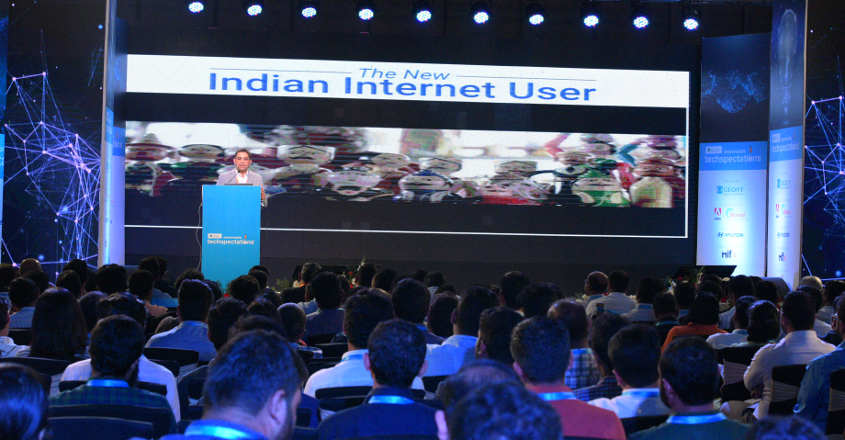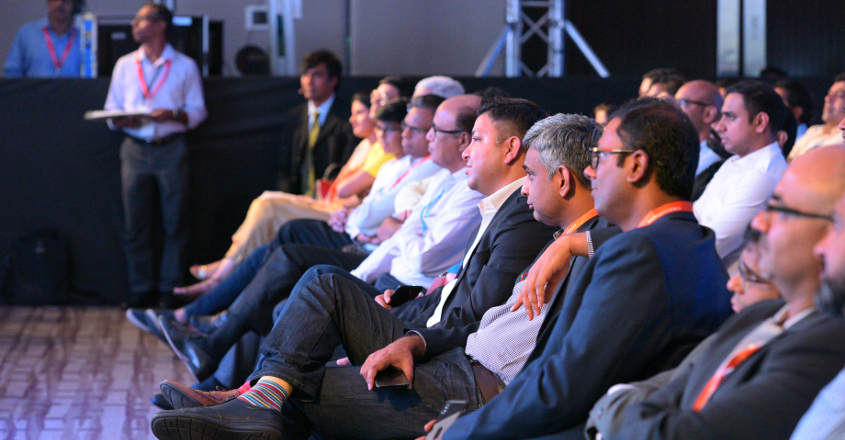Rural women powering internet revolution: YouTube's Ajay Vidyasagar

Mail This Article
Kochi: Women from rural areas are turning out to be the prime drivers of the stupendous growth of internet usage in the country, Ajay Vidyasagar, the Asia-Pacific head of YouTube said on Saturday.
He was delivering the keynote address at the Manoramaonline Geojit Techspectations 2018 here.
"45 per cent of users will be women in the next three years," he said.
The revolutionary changes are happening mainly in villages and small-time towns with a population of below 50,000.
"I see that the content that was winning two years back is changing complexion to reflect this reality of enterprising information-hungry rural women taking centrestage," Ajay said.
He said that this would get amplified in the near future.
Here is the factoid that emboldened him to make the prognosis: "Growth of rural internet is 400 per cent faster than the developed markets in the country."
Google was doing its bit to empower rural women. Google has introduced a new product, Internet Saathi, in partnership with the Tatas.

Under the scheme, rural women are provided 'booted-up' cycles that radiate internet for up to a kilometre radius.
These women park their cycles in public places like a market or a bus stand, essentially places where rural people gather, and hang around the place for a time.
"What we have found was that the single largest users of this service was women," Vidyasagar said.
"They finish cooking, pack off their husbands and children, flip out their mobile phones and access whatever they want to. Women who had not seen the world outside their small village began to access internet in ways that were never predicted," Ajay said.
There are over 50,000 'Internet Saathis' in the country and they together service over two lakh villages. Already, 20 million women have benefited, he pointed out.
Ajay said he had met some of these women, like for instance the lady who had learnt embroidery from the internet and has started to earn the double the income her husband was earning.

"The change that this brings, the empowerment that digital can bring to people outside the mainstream ecosystem is mind blowing," Ajay said.
Changing internet behaviour
The YouTube honcho listed three factors that would define the internet use behaviour of the new Indian user. Voice, vernacular language, and video.
Voice. He said that there had been a 270 per cent growth in voice searches this year. year. More astounding is the 400 per cent growth in Hindi voice searches. "People in rural areas, who had hitherto been limited by their inability to write or type, are using voice to get into the internet," Ajay said.
This is also why internet access in North India, where internet access was traditionally low, has suddenly started to pick up. "The hunger for information is there in every human being," Ajay said.
Local language or vernacular: There has been an amazing growth in local language queries over the last 18 months. The growth of internet users from 390 million to 650 million is going to be predominantly accounted for by users setting their language in Hindi and other Indian languages.
At the moment, 190 million of the 390 million users have set English as their preferred language.
Video: After the massive success of 'Kolavari Di' and 'Jimikki Kammal' this should not have come as a surprise. Video will be the gateway to the internet for new users.
Ajay said that an India company, T-Series, is all set to be the largest YouTube channel in the world. And the largest YouTube news channel, again, is from India: Aaj Tak.
"The change that Indians are making in the way they engage with content and share content is astounding," Ajay said.
To demonstrate his point, Ajay showed a video of a railway porter in Kochi used the free Wi-Fi services at the Kochi railway station to download UPSC questions and finally succeed in the village assistant test.

